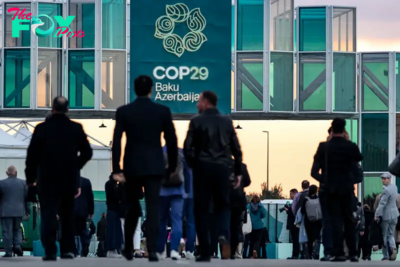World News
The Olympic Team That Shall Not Be Named: The Politics and History Behind ‘Chinese Taipei’
National flags are ubiquitous during the Olympics in Paris, and when athletes win medals, they usually look to theirs as their national anthem is played during the podium ceremony.
But not for athletes of one team.
The red-and-blue flag of Taiwan is banned for both athletes and fans, and when Taiwanese badminton players Lee Yang and Wang Chi Lin won gold (again) in the men’s doubles final against China on Sunday, their national anthem wasn’t allowed to be blared from any speakers in the arena. Instead, Taiwanese athletes comPete for Team “Chinese Taipei” with its neutral white “plum blossom” banner, while victors are treated to the tune of the flag anthem, with its lyrics modified to remove any reference to the Taiwan flag.
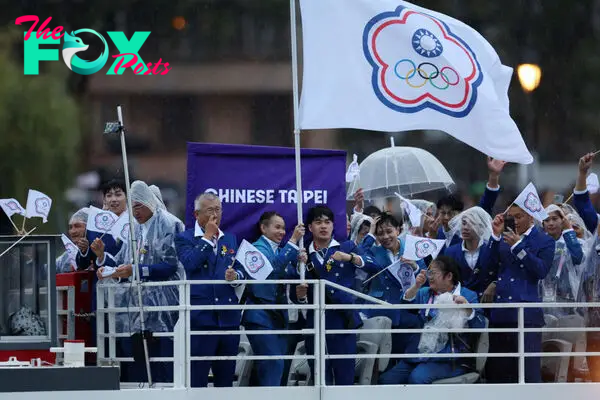
No other participating team—from territories like Puerto Rico to contested lands like Palestine—is subject to such restrictions, making the Olympics a somewhat frustrating event for the people of Taiwan. It also makes winning that much more meaningful.
After Lee and Wang’s victory, celebrations rang across the self-ruled island that China considers to be its territory. “They are the glory of the nation,” Taiwan President Lai Ching-te said. They “allowed the world to see Taiwan once again,” Eric Chu, chair of the typically more Beijing-friendly opposition party, posted on Facebook.
In addition to the badminton gold, Chinese Taipei has already won four other medals, all bronze so far, though it’s guaranteed at least a silver in women’s 57-kg boxing when Lin Yu Ting, who has been the subject of much controversy over misconceptions about her gender, fights in the event final on Saturday night.
Read More: Taiwan Turns Against J.K. Rowling for Stirring Olympic Boxing Gender Controversy
For Taiwan, the Olympics are an opportunity to assert the island’s visibility on a global stage—and to highlight just how much it has to comPete against enforced invisibility, something it also faces in other forums like the United Nations.
“People do not pay attention to some events in international organizations, or summits by the international leaders, or any kinds of diplomatic statements. But people can just feel that we are getting pressured, bullied by China in this sports event. It’s more salient,” Fang-yu Chen, an assistant professor of political science at Soochow University in Taiwan, tells TIME.
At the Games in Paris, reports have proliferated of fans being made to wipe off face paint and having their signs confiscated by Chinese fans or Olympics officials. “It’s really unfair,” Yang Jhih-yun, a 26-year-old Taiwanese student in France, told the Washington Post, after her green cardboard cutout of the island that said “Go Taiwan” in Chinese characters was ripped from her hands by a suspected Chinese audience member at Lee and Wang’s semifinal match last Friday as a security official was standing beside Yang and had already told her the sign was “forbidden.”
While Taiwan’s foreign ministry has condemned such actions as “crude and despicable” and in violation of the spirit of the Games, the International Olympic Committee (IOC) justifies its ban on displays of Taiwanese nationalism as part of its prohibition on political, religious, or racial propaganda in Olympic venues. Paris 2024 organizers have pointed to the terms and conditions, including a prohibition on political messaging, that spectators agree to follow.
Displays of Taiwanese nationalism of course cross “every red line” of the Chinese Communist Party (CCP), says Chun-yi Lee, director of the Taiwan Studies Program at the University of Nottingham in the U.K. But, she also notes, “the Olympics is politics” for every delegation. Efforts to keep politics out of the Games, which are practically defined by nationalism, have long proven futile.
As for Taiwan’s team name, Chinese Taipei is what it has agreed to participate under—for now. But it wasn’t always the case.
The history of Taiwan’s Olympic team name
Chinese Taipei is the culmination of multiple name changes and boycotts by the Taiwan Olympic delegation since the 1949 Chinese civil war—which resulted in the mainland-based CCP proclaiming the People’s Republic of China (PRC) while the Republic of China (ROC) retreated to the island of Taiwan, with both claiming to be the rightful government of the entirety of China.
Following a boycott of the 1952 Games because of the PRC’s participation, Taiwan competed in the 1956 Summer Games through the 1976 Winter Games variously under the names Republic of China, Taiwan, and Formosa (which refers to what Portuguese sailors had called the island of Taiwan). China boycotted the Olympics during that period in protest of the IOC permitting Taiwan’s participation.
But a turning point came in 1976, when Summer Games host Canada, which by that point had come like much of the world to adopt a “One China” policy that recognized the PRC, pushed to exclude Taiwan—a move Taiwan allies, such as the U.S., strongly opposed. Ultimately, Canada and the IOC agreed to offer Taiwan a compromise: drop the “Republic of China” name and compete as “Taiwan.” But Taiwan refused and, on the day before the Opening Ceremony in Montreal, its delegation chief announced their withdrawal from the Games at an impromptu press conference: “OK, out, goodbye.”
Read More: A History of Political Protest at the Olympics
The IOC wanted to resolve the controversy and proposed in 1979 that Taiwan participate under the name “Chinese Taipei” without reference to the Republic of China, its flag, or its national anthem. China and a majority of IOC members accepted the resolution, but Taiwan didn’t agree until 1981—after the 1980 Summer Games in Moscow, which many countries, including China and the U.S., boycotted over the Soviet-Afghan war. Taiwan first comPeted under the “Chinese Taipei” name at the 1984 Winter Games in Sarajevo and has begrudgingly continued to do so through the current Games in Paris.
But even the Chinese language translation of “Chinese Taipei” is heavily politicized. Chinese state media translate it to zhōngguótáiběi—which can be understood to mean “the country of China, Taipei” (as in, a city that’s part of China)—while Taiwanese media instead translate it to zhōnghuátáiběi—which means “Chinese Taipei” but connotes the Chinese ethnicity or a general “Chinese-ness” instead. The Olympic Committees of both China and Taiwan agreed in 1989 to use the Taiwanese translation for sporting events held on the mainland, though Chinese government agencies and state media continue to use the Chinese translation in other contexts, including coverage of sporting events elsewhere like Paris. The University of Nottingham’s Lee tells TIME that these competing translations make “Chinese Taipei” more palatable for the discrete politics of China and Taiwan: “It is a little bit like ‘one country, two systems’ situation. So it is ‘one word, two interpretations.’”
A 2018 referendum was held asking the Taiwanese public whether it should change its Olympic delegation name back to Taiwan, but the majority voted against the plan out of concern that its athletes would be banned from future competitions as a result. “This name, Chinese Taipei, is a compromise, and most Taiwanese people know that it is a compromise,” says Chen from Soochow University. “Of course, we are frustrated about that. However, Taiwanese people understand the reality of the situation.”
-

 World News7h ago
World News7h agoWorld’s Best Brands – Brazil
-

 World News1d ago
World News1d agoWorld’s Best Brands – India
-
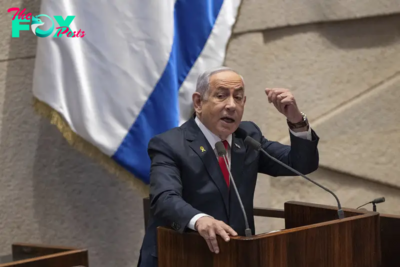
 World News1d ago
World News1d agoInternational Criminal Court Issues Arrest Warrants for Netanyahu and Hamas Commander
-

 World News1d ago
World News1d agoLandmark Bill to Ban Children From Social Media Introduced in Australia’s Parliament
-
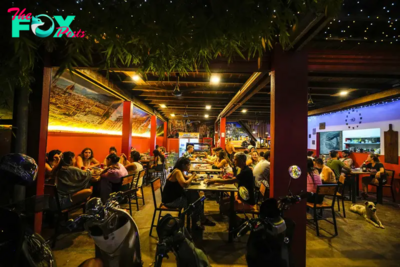
 World News1d ago
World News1d agoAmerican and Australian Tourists Die in Laos After Drinking Tainted Alcohol
-
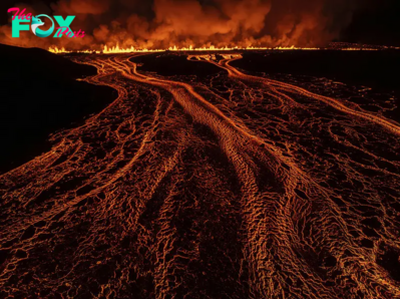
 World News2d ago
World News2d agoSee Photos of the Seventh Volcanic Eruption on Iceland’s Reykjanes Peninsula in 12 Months
-

 World News2d ago
World News2d agoMuhammad Yunus on the Race to Build Bangladesh 2.0
-

 World News2d ago
World News2d agoU.S. Charges Indian Billionaire Gautam Adani With Defrauding Investors
